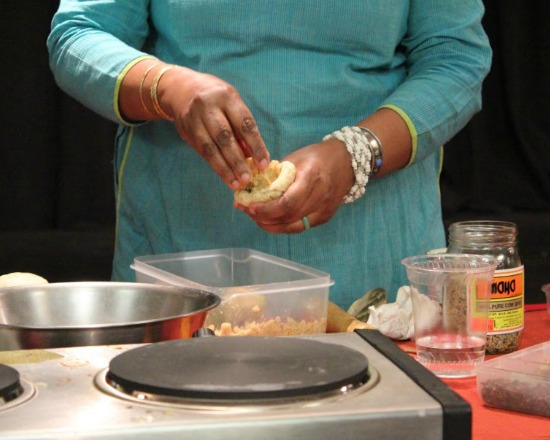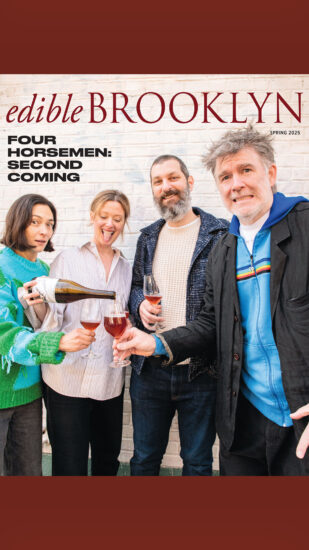Apiaries decorate each hive uniquely to prevent bees from drifting away. Sixty-eight percent of low-wage workers report wage theft within the last week. The secret to fluffy basmati is to rinse the rice with cold water once it’s al dente. These are just a few of actionable takeaways that laced the fourth annual CUNY FoodFEST, a day-long conference on food justice and healthy eating sponsored by the Macaulay Honors College of the City University of New York and the William R. Kenan Scholars Program. With three locally sourced meals, food and policy discussions, and hands-on workshops, the event was a training camp for attendees of all backgrounds.
One part of food citizenship, a term introduced in the keynote panel by Max Apton of Stone Barns, is acknowledging that nothing can substitute the relationship with a grower. One could commit to eating organically and still shop from some multinational and relatively unsustainable companies. For novice good food citizens, like the woman who questioned “What is a CSA?,” there was a discussion section led by chef Rosalind Francis of Harlem Seeds. Showing the USDA organic label on a handful of packaged products, the room discussed CSAs, greenmarkets and grocery stores, and how to question and decode business and farmers’ practices no matter where you shop. Still, seasonal and local foods were emphasized by their taste difference—how Harlem Seeds convinces kids to refuse $1 pizza in favor of cooking veggies at home.
For the activist-minded attendees there was a conversation with Keith McHenry, cofounder of Food Not Bombs, an international all-volunteer organization that recovers food and shares vegan and vegetarian meals with the hungry as an act of protest. There was also a panel with food service workers struggling to unionize and demand a living wage. Like the legalization of beekeeping in New York City, which made Chase Emmons’s role at Brooklyn Grange possible, labor activists have seen limited success in new minimum wage laws in NY State. But the legislation failed to extend to tip workers or allocate money for enforcement. Participating organizations drew support for continued activism from the crowd at the late-afternoon resource fair.
The event’s final element of good food citizenship was both practical and palatable. Chris Forbes of Sour Puss Pickles made preserving accessible as we each pickled a seasonal giardiniera of cauliflower, Brussels sprouts and carrots to take home. The recommendations for spice shops in the city and advice to be adventurous with spices extended through the cooking demonstration led by Mukti Banerjee, recently featured in Edible Brooklyn. Multitasking through seven dishes, she demystified Indian home cooking while the aroma of a fall vegetable curry wafted through the air.
The dinner feast of vegetarian Indian food made by Ms. Banerjee and Macaulay students, together with the breakfast and lunch provided by Hot Bread Kitchen, served as a reminder that we vote three times a day through our food choices. It was a day well spent for food citizens inside the Upper West Side barricades of the NYC Marathon.



